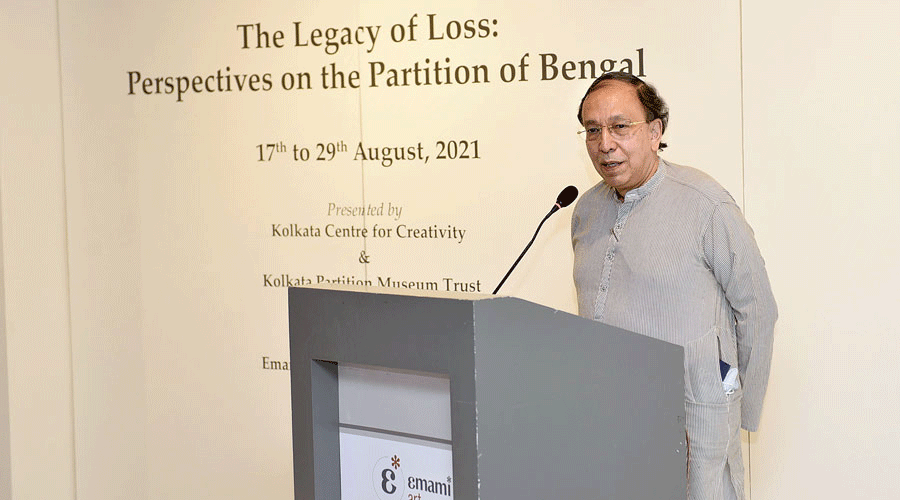Historian Sugata Bose on Tuesday called out the attempts to recount the horrors of Partition to add fuel to the fire of the divisive politics that he said was ruining the country.
“The (Bengal) Famine and the Partition define what we were as a people…. We don’t just have to remember. We have to know how to remember. There are attempts and there will be attempts to remember and to evoke the horror of the Partition in quite the wrong way, in the age of the worst kind of divisive politics which is ruining contemporary India,” Bose, Harvard professor and the grandnephew of Netaji Subhas Chandra Bose, told a Calcutta audience.
He was one of the speakers at the inauguration of an exhibition on Partition at a gallery in the city.
Prime Minister Narendra Modi tweeted on August 14 that the day would now be observed as “Partition Horrors Remembrance Day”, stressing that the misery suffered during the 1947 Partition of the country can never be forgotten.
The tweet drew criticism from many quarters. The statement was seen as an attempt at reopening old wounds and polarising people, especially in the run-up to the Assembly elections in Uttar Pradesh.
A social media campaign, which tries to reinvigorate attempts to pin the blame of the atrocities committed during Partition on one community, is under way. Several posts from Right-wing sympathisers have likened the horrors of the Taliban takeover of Afghanistan to that of the Indian Partition.
In reality, both Hindus and Muslims, hundreds of thousands of them, were subjected to excruciating torture and forced to leave their homes because of Partition.
Speaking to this newspaper on the sidelines of Tuesday’s programme, Bose talked about the Prime Minister’s tweet.
“On August 14, a tweet from the Prime Minister talking about the horrors of Partition was designed to foment continuing hatred and provide more fuel to the divisive politics that has been ruining contemporary India. There are other ways to remember it,” he said.
During his address, he had talked about another way to remember Partition.
“If artistes can sensitively portray the loss of Partition, the tragedy of Partition as they have in this exhibition, then it can have some cathartic value, a catharsis that will enable us to transcend the bitterness of Partition, to leave the hatred that had led to Partition behind and help us build a much more fruitful subcontinent,” he said.
The exhibition, underway from August 17 to 29, is titled The Legacy of Loss: Perspectives on the Partition of Bengal.
Organised by the Kolkata Centre for Creativity and Kolkata Partition Museum, it is a collection of paintings, photographs and installations of five contemporary artists. “While some of these artists have inherited a sense of loss from their parents or grandparents, others have grown to identify with it, and inhabit it from a place of empathy and intellectual curiosity,” said the curatorial note.
Gianluca Rubagotti, the Italian consul general in Calcutta, filmmaker Goutam Ghose and artist Shuvaprasanna were among the other speakers to mark the inauguration.
An excerpt from Home in the World, Amartya Sen’s memoir that came out in July this year, greeted visitors to the exhibition and also summed up its mood.
“All this changed with the Partition of the country in 1947. The communal riots and terrible bloodshed generated continuous sadness. It also meant we had to move. Dhaka became the capital of a newly born East Pakistan, and my family’s home base had to shift to Santiniketan. I loved Santiniketan, but I greatly missed Dhaka…. I had lost a world. The loss of Dhaka could not be obliterated by the fulfilment — great as it was — of being in Santiniketan. Enjoying a new life, I was rapidly discovering, does not exclude intensely missing the old,” it read.










